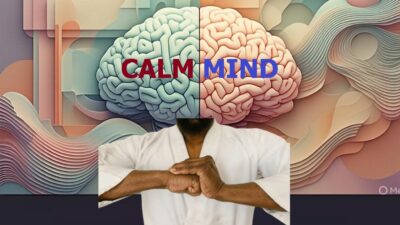Introduction
Have you ever wondered how lifelong learning can improve your life? Lifelong learning is not just a trend; it is an essential approach to personal and professional growth. This article will explore the profound importance of lifelong learning (Lifelong Learning Importance), its benefits, and practical steps to incorporate it into your life. We will back our discussion with real-world examples, statistics, and actionable insights.
Table of contents
- 1. What Is Lifelong Learning?
- 2. Why Is Lifelong Learning Important?
- 3. How Does Lifelong Learning Impact Personal and Professional Life?
- 4. Practical Steps to Embrace Lifelong Learning
- 5. Real-Life Examples of Lifelong Learners
- 6. Challenges and Solutions
- 7. How Can Lifelong Learning Shape the Future?
- Conclusion
- FAQ on Lifelong Learning
1. What Is Lifelong Learning?
Lifelong learning refers to the ongoing, voluntary pursuit of knowledge and skills throughout an individual’s life. Unlike traditional education, it transcends formal schooling, emphasizing self-motivated and informal learning. The importance of lifelong learning lies in its ability to foster personal development, professional enhancement, and spiritual growth, ensuring that individuals remain adaptable in an ever-changing world.
Key Characteristics:
- Self-directed: Learning is initiated by the learner.
- Flexible: It happens across various settings, including online courses, books, and experiences.
- Goal-oriented: Focused on achieving specific personal or professional objectives.
2. Why Is Lifelong Learning Important?
A. Adapting to Technological Advancements
The rapid evolution of technology has made certain skills obsolete. For example, a report by the World Economic Forum (2021) highlighted that 50% of employees will need reskilling by 2025 due to automation and digitization. Lifelong learning equips individuals to stay relevant and competitive in their fields.
B. Enhancing Personal Growth
Learning fosters self-improvement, enabling individuals to explore new hobbies, master languages, or develop critical thinking. For instance, studies from the University of Cambridge have shown that engaging in intellectual activities can delay cognitive decline in older adults.
C. Promoting Economic Opportunities
People with a growth mindset often achieve greater career success. According to LinkedIn Learning’s Workplace Report (2023), employees who engage in continuous learning are more likely to receive promotions and salary increases.
D. Contributing to Community Development
Educated individuals play pivotal roles in their communities. By sharing knowledge and skills, they empower others and contribute to collective progress.
3. How Does Lifelong Learning Impact Personal and Professional Life?
A. Building Confidence and Self-Efficacy
Acquiring new skills boosts confidence. For example, learning public speaking through platforms like Toastmasters can help individuals overcome stage fright, enabling them to communicate effectively.
B. Fostering Innovation
Continuous learning inspires creativity. Professionals who stay updated on industry trends often introduce innovative solutions, benefiting their organizations.
C. Improving Health and Well-being
Mental stimulation through learning activities reduces stress and enhances overall well-being. A study published in the Journal of Psychological Research (2020) revealed that individuals engaged in lifelong learning reported lower levels of anxiety and higher life satisfaction.
4. Practical Steps to Embrace Lifelong Learning
A. Set Clear Goals
Define what you want to achieve. For example:
- Learning foreign languages.
- Master a software tool to enhance productivity.
B. Leverage Online Platforms
Utilize resources like:
- Coursera and edX for academic courses.
- Skillshare and Udemy for creative skills.
C. Read Widely
Books and articles offer invaluable knowledge. Use platforms like Google Books or Project Gutenberg to access free resources.
D. Attend Workshops and Seminars
Participate in professional events to gain hands-on experience and network with like-minded individuals.
E. Engage in Community Learning
Volunteer for projects or join local groups to gain practical skills while contributing to society.

5. Real-Life Examples of Lifelong Learners
A. Elon Musk
The entrepreneur famously learned rocket science by reading books and consulting experts, eventually founding SpaceX.
B. Malala Yousafzai
Despite facing adversity, she pursued education and advocates for lifelong learning globally.
C. Self-Taught Programmers
Many tech professionals, like those who contribute to open-source platforms, acquire their expertise through continuous self-learning.
6. Challenges and Solutions
A. Time Constraints
Solution: Allocate specific hours weekly for learning. Use apps like Headspace to manage time effectively.
B. Lack of Resources
Solution: Explore free platforms such as Open Culture and Internet Archive.
C. Motivational Barriers
Solution: Join accountability groups or track progress using tools like MyFitnessPal (adaptable for learning goals).
7. How Can Lifelong Learning Shape the Future?
The future workforce will prioritize adaptability and innovation. According to a report by McKinsey (2023), organizations investing in employee learning see an 18% higher retention rate and 24% greater productivity. By embracing lifelong learning, individuals not only secure their future but also contribute to societal advancement.
Conclusion
Lifelong learning is a transformative journey that empowers individuals to adapt, grow, and excel in an ever-evolving world. By incorporating practical steps, leveraging resources, and staying motivated, anyone can embrace this enriching path. So, are you ready to begin your lifelong learning journey today?
FAQ on Lifelong Learning
1. How can Continuous learning improve mental health and well-being?
Lifelong learning keeps the brain active, reducing the risk of cognitive decline. Engaging in learning activities has been shown to lower stress and increase life satisfaction by providing a sense of purpose and achievement.
2. What role does lifelong learning play in career transitions?
It helps individuals adapt to new industries by acquiring updated skills and knowledge. For example, someone transitioning to a tech career can take online coding courses to stay competitive.
3. Are there affordable or free resources for Continuous learning?
Yes! Platforms like Coursera, Khan Academy, and Open Culture offer free courses on various topics. Public libraries and community workshops are also great sources for affordable learning.
4. How can parents encourage Continuous learning in their children?
Parents can foster curiosity by introducing diverse activities, such as reading together, exploring educational games, or encouraging creative projects. Modeling a love for learning also inspires children to follow suit.
5. What are some daily habits of successful Continuous learning?
They set clear goals, schedule time for learning, read regularly, and stay curious about new topics. Additionally, they use tools like podcasts, books, or online courses to make learning a seamless part of their daily routine.
Sources:
Warning: The provided links lead only to the specified content. Other areas of those sites may contain material that conflicts with some beliefs or ethics. Please view only the intended page.
- World Economic Forum, 2021: “The Future of Jobs Report”
- LinkedIn Learning, 2023: “Workplace Learning Report”
- Journal of Psychological Research, 2020: “Cognitive Benefits of Lifelong Learning”
- McKinsey, 2023: “Employee Learning and Retention”
- University of Cambridge, Cognitive Studies, 2019
Image Resources:






